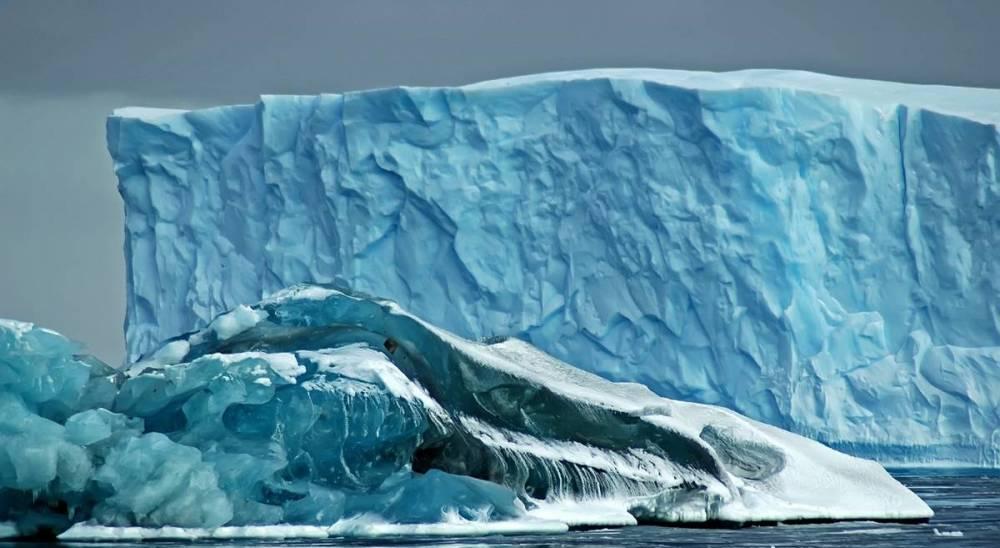
CNN reported on April 14 that a study on "atmospheric rivers" was published thursday in the nature magazine Earth and Environment Communications. As the planet warms further, Antarctic glaciers gradually melt into trickles into the oceans; "atmospheric rivers" transport warm air and water vapor from the earth's tropics to other regions, accelerating the melting process of the largest ice shelf on the Antarctic Peninsula (Larsen C), and the risk of complete collapse gradually increases. Although some experts hold different views, the consequences are undoubtedly catastrophic.
In March, temperatures soared in East Antarctica, 38 degrees Celsius (about 70 degrees Fahrenheit) above normal levels, and the Congel Ice Shelf, about the size of Los Angeles, collapsed. While scientists aren't sure what extreme temperatures played in this event, the effects of "atmospheric rivers" certainly can't be ignored. The event also heralds the future of the Larsen C Ice Shelf. (The Larsen Ice Shelf is located on the edge of the Antarctic Peninsula, northwest of the Weddell Sea, and from north to south are Larsen A, Larsen B, and Larsen C.) The Larsen C Ice Shelf is the largest ice shelf in the Antarctic Peninsula and the fourth largest in the world. )
Jonathan Will of the University of the Alps in Grenoble, France, told CNN that their study, using algorithms, climate models and satellite observations, showed that 60% of the disintegration events on the Antarctic Peninsula between 2000 and 2020 (icebergs breaking from ice shelves or glaciers) were triggered by "atmospheric rivers", the most typical examples being the collapse of Larsen A in 1995 and Larsen B in 2002.
The arrival of "atmospheric rivers" is accompanied by rain and snow, which brings extreme temperatures to form a wind burning effect, which will cause the surface of sea ice to melt, the disintegration of sea ice and the expansion of the ocean, which will destabilize the ice shelf. Incendiary winds are caused by air currents sinking across high mountains, turning cool, moist air into warm, dry air, causing sea ice to melt and can also have a chain reaction such as ice shelf rupture. Melting sea ice exposes the ice shelf to waves, resulting in poorer shelf stability. Both incendiary winds and melting sea ice are closely related to "atmospheric rivers".
Will believes Larson C is at risk of complete collapse because almost all of these extreme weather events on the Antarctic Peninsula are caused by "atmospheric rivers." Julienne Stroeve, a professor of polar observation and modelling at University College London, while not involved in the study, disagreed with Will's claims, declaring that different atmospheric analyses give different results and that it is too early to draw conclusions as they occur more frequently as climate changes. She added that the atmosphere could melt the surface of the ice shelf and weaken its stability, and snowball over and over again increase the damage.
While it is uncertain how often "atmospheric rivers" will appear in the future, Will believes they will at least become more powerful, as the nature of "atmospheric rivers" dictates that more water will be transported to Antarctica, which will increase the instability of the ice shelf. John Turner, a meteorologist at the British Antarctic Survey, while acknowledging that "atmospheric rivers" are a key factor in influencing ice shelves, cautioned against overemphasizing the role of "atmospheric rivers," telling the media that even the absence of "atmospheric rivers" can lead to extreme weather, such as strong northerly winds that typically bring a lot of snowfall and high temperatures. He believes that melting at the bottom of the ice will also destabilize it.
Although experts disagree, they all suggest that the harm caused by the collapse of the ice shelf is catastrophic. Will believes that the ice shelf is already floating in the water, and even if it melts, it will not increase the huge volume. But the ice shelf prevents glaciers from the land behind them from flowing into the ocean, effectively preventing sea levels from rising sharply. To date, much of the world's melting ice and rising sea levels can be attributed to the melting of the Arctic Greenland ice sheet, and if the ice across the Antarctic continent melts, sea levels could rise by 60 meters (nearly 200 feet), and vast areas of western Antarctica with an average elevation of only 6 meters will be swallowed up, a catastrophe for millions of people living along the coast and beyond.
In recent years, the extreme weather and natural disasters caused by global warming have become more and more frequent, the problem has become imminent, we not only need to develop new energy, advocate energy conservation and emission reduction, but also need to live in harmony with nature and cherish the earth, which is the common home of mankind.
This article is the subject of: Ginger Emperor Penguin. EDIT: Little Orange